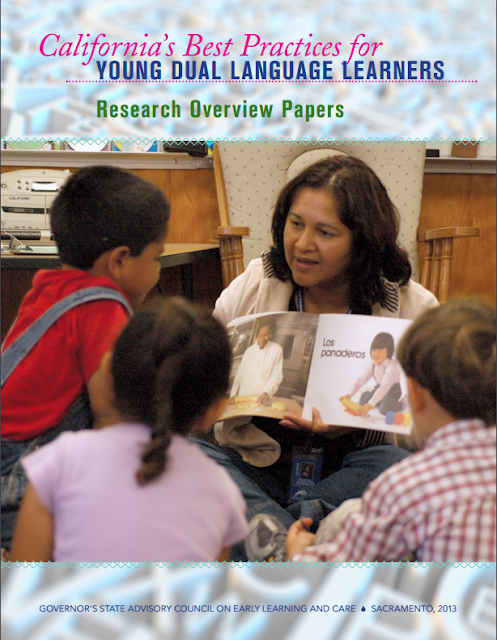Teach the Children in the Language They Know
Most publications in the sciences are in English. There is no doubt that learning English is important in basic education. Children from homes where the adults and older siblings do not regularly talk in English learn to communicate in a different language, a mother tongue different from English. These children are therefore developing their cognitive skills in a different medium. One might be quick in suggesting that this is bad for children who are expected to learn English. For this reason, it is necessary that we make ourselves knowledgeable of what current research on language learners tells us. Learning a mother tongue other than English is obviously not a disadvantage. It should not lead to developmental delays. On the other hand, simply giving a lip service to mother tongue based education is likewise incorrect.
In 2013, the State Advisory Council on Early Learning and Care in California published California’s Best Practices for Young Dual Language Learners: Research Overview Papers:
The above is more than 200 pages long. It consists of six papers that review current research findings on young dual language learners. Dual language learners can be classified into two types: simultaneous and sequential. In the Philippines, it is likely that dual language learners are sequential. Before attending school, children in the Philippines are often exposed only to one language spoken at home. Within this context, it is important to take note of the following excerpt:
In 2013, the State Advisory Council on Early Learning and Care in California published California’s Best Practices for Young Dual Language Learners: Research Overview Papers:
The above is more than 200 pages long. It consists of six papers that review current research findings on young dual language learners. Dual language learners can be classified into two types: simultaneous and sequential. In the Philippines, it is likely that dual language learners are sequential. Before attending school, children in the Philippines are often exposed only to one language spoken at home. Within this context, it is important to take note of the following excerpt:
In contrast, the language development of children who learn a second language sequentially—that is, after the first language is established or from about three years of age onward—follows a different progression and is highly sensitive to the characteristics of the child as well as the language learning environment.Research on dual language learners is also quite clear on what is required.
Children should be provided with high-quality language experiences and support to master both of their languages. Across multiple domains, the cognitive advantages of bilingualism were strongest when children were proficient with both languages, and there were no discernible benefits to dual language learning when children’s experience with one language was limited.Mother tongue based education clearly offers children a more welcoming atmosphere in the school. To be effective in education however requires more. Growth in cognitive skills using the mother tongue requires the same quality in learning resources as English books do. These also require teachers who are effective in mother tongue based education. The teachers not only should bring the language spoken at home, but also the home culture and experiences.

Comments
Post a Comment